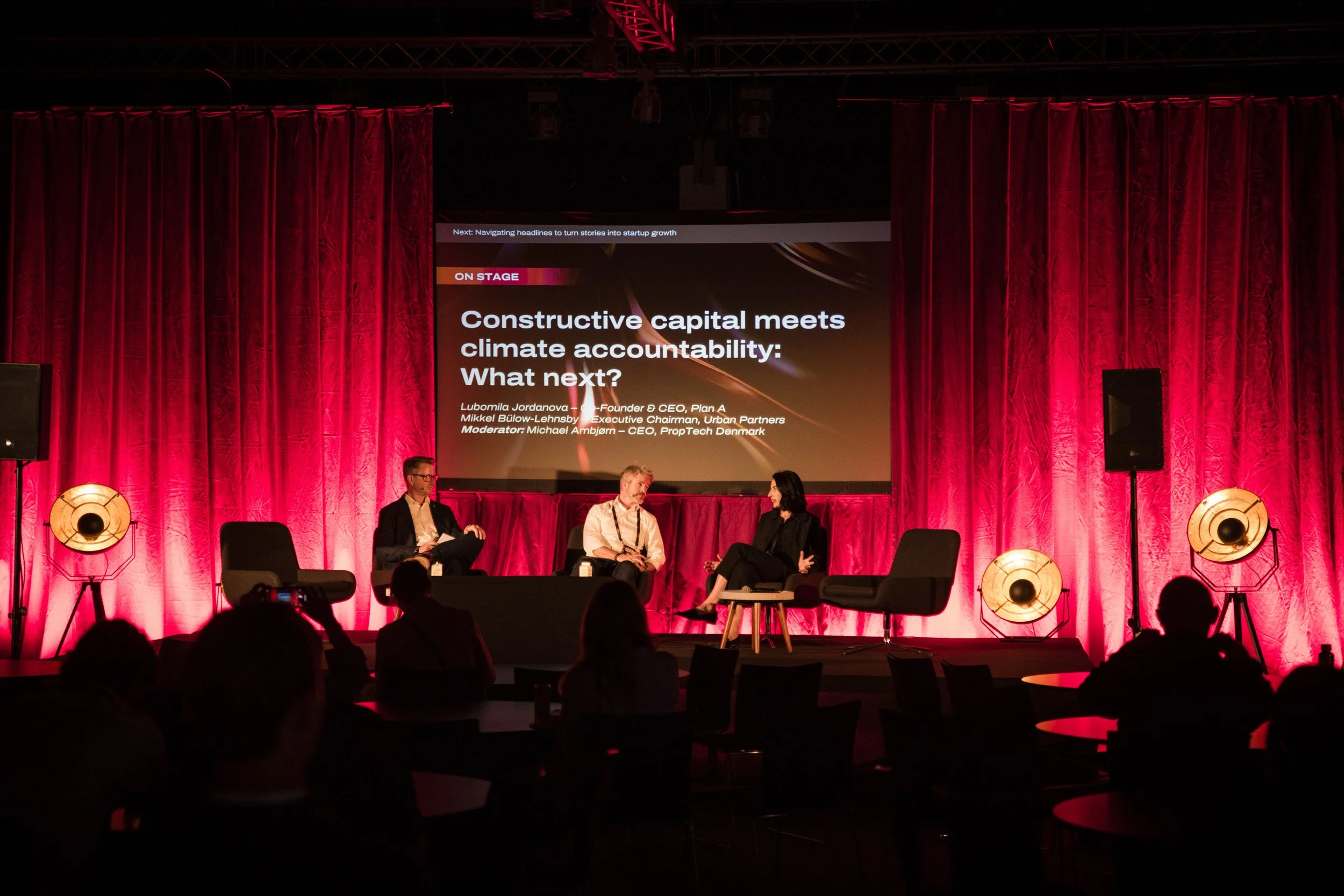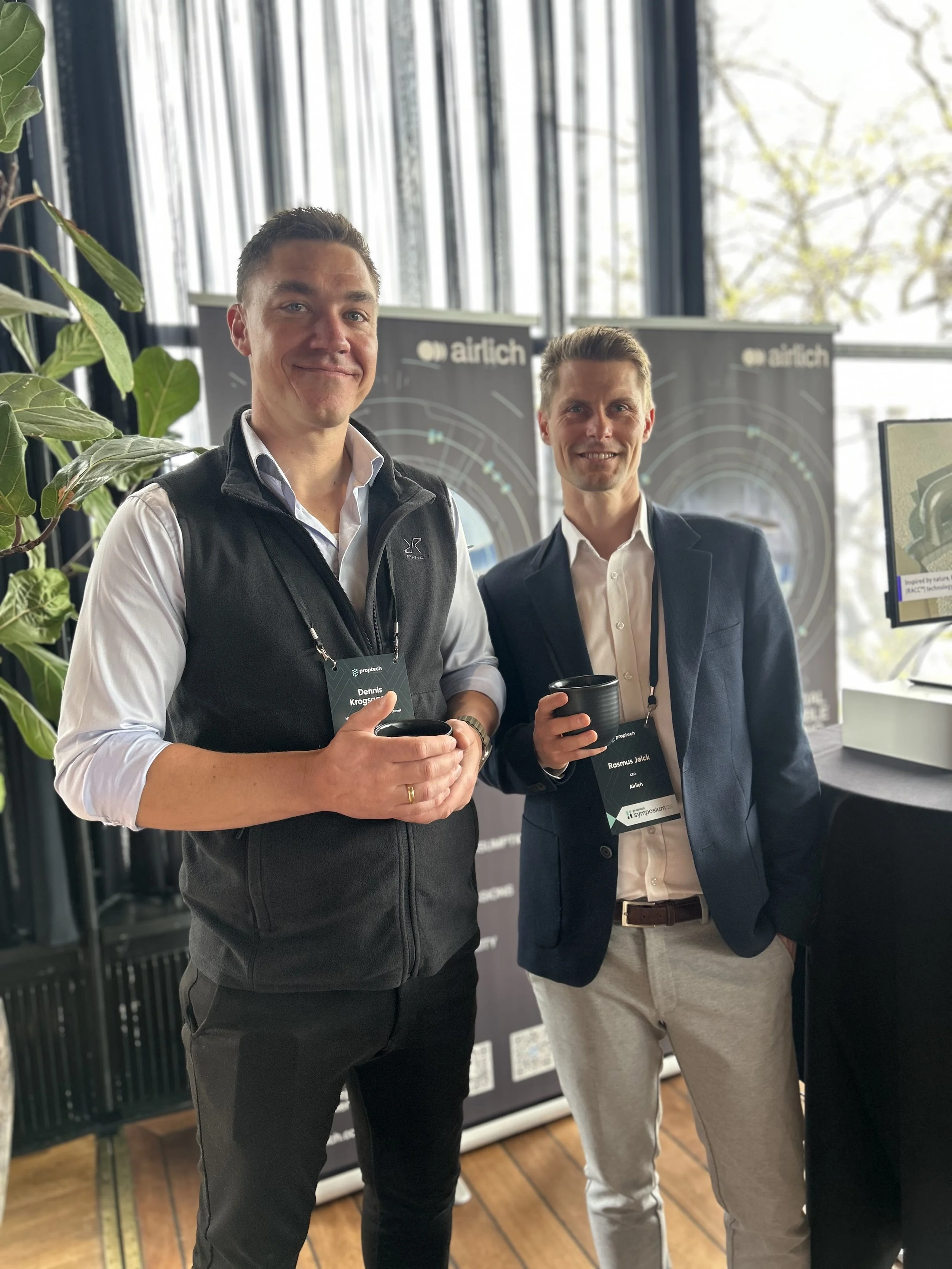Constructive capital meets climate accountability
Capital has the power to accelerate – or delay – the green transition. From proving the returns of decarbonisation to bridging the education gap, constructive capital must move beyond profit to accountability.
How do we ensure that capital actively supports the green transition rather than holding it back? This was the central question when Mikkel Bülow-Lehnsby (Co-founder & Executive Chairman of Urban Partners) and Lubomila Jordanova (CEO & Founder, Plan A) joined the panel Constructive Capital Meets Climate Accountability at TechBBQ 2025. Their discussion underscored one key point: responsibility and education are as important as financial returns.
Capital as a driver of change
For Mikkel Bülow-Lehnsby, the role of capital is clear: investing in what the future needs is not about taking on greater risk. It is about reducing it. Today, non-net zero projects are already proving more expensive and delivering lower returns than climate-aligned ones. Yet, incentives remain fragmented across the value chain. The ambition, he argued, must be to build green cities and solve design and supply chain challenges with climate accountability at the centre. That is the path to solving the problems of tomorrow.
Education: the missing link
Lubomila Jordanova highlighted that no single organisation can drive this change alone. “It takes a village,” she noted, underscoring the importance of full ecosystem collaboration. Education and knowledge sharing remain crucial. Without them, the sustainability chain breaks. Both speakers agreed that climate should be seen as a shared challenge, not a political wedge. The shift must be framed not as a moral obligation, but as an economic and societal necessity.
Proving the ROI of decarbonisation
If investors are to be convinced, numbers must speak. As Lubomila explained, showing the return on investment in decarbonisation is what creates real momentum: “If you want to change someone’s pockets, you need to show ROI.” At the same time, Mikkel stressed the power of storytelling – demonstrating that green energy is not only viable, but already the most cost-efficient path forward.
One example is smart HVAC optimisation (heating, ventilation, and cooling). Done efficiently, this has the potential to cut energy consumption by up to 30% in office buildings, both reducing costs and improving tenant satisfaction.
Another example is energy efficiency retrofits in commercial real estate; for instance switching to heat pumps combined with digital monitoring. A clear case for ROI within a few years, thanks to lower energy bills.
Time as our most valuable currency
Perhaps the most urgent message was about time. Climate action is not a passing trend or a hype. It is THE fundamental issue that underpins everything. Lubomila’s reminder was sobering: “The most expensive currency we have is our time.” Connecting daily decisions to climate impact is no longer optional; it is essential for capital, people, and planet alike.
A call to action
The panel closed with a clear takeaway: we need to align constructive capital with climate accountability, bridge the educational gap, and focus relentlessly on solving relevant problems. Only then can we unlock the long-term value that serves both society and the environment.
Turning climate accountability into action can certainly feel overwhelming, but there are clear first steps. Begin by measuring your footprint through carbon accounting tools or simple energy and resource audits. This will help you understand where the biggest savings and risks lie. Then, prioritise quick wins such as optimising energy use, switching to green power contracts, or upgrading outdated systems, or other changes with a shorter ROI.
And, just as important, collaborate and share knowledge across the ecosystem: engage with suppliers, partners, and peers to align standards, exchange best practices, and avoid repeating mistakes. For example by joining PropTech Fora, Practitioner Networks, or other relevant interest groups.
The good news? We can (and should) all make a collective impact – for people and planet.
About
Urban Partners is a purpose-driven investment platform with a focus on sustainable urban development. By channeling capital into green cities, resilient infrastructure, and climate-responsible design, Urban Partners positions itself at the forefront of long-term value creation. Their perspective matters because they directly influence how capital is allocated to projects that shape the future of our built environment.
Plan A is a leading climate tech company providing software solutions for carbon accounting, decarbonisation, and ESG reporting. By combining technology with actionable insights, Plan A enables companies and investors to measure, reduce, and report their climate impact effectively. Their perspective matters because they are on the frontline of translating sustainability into measurable ROI, bridging the gap between ambition and accountability.










